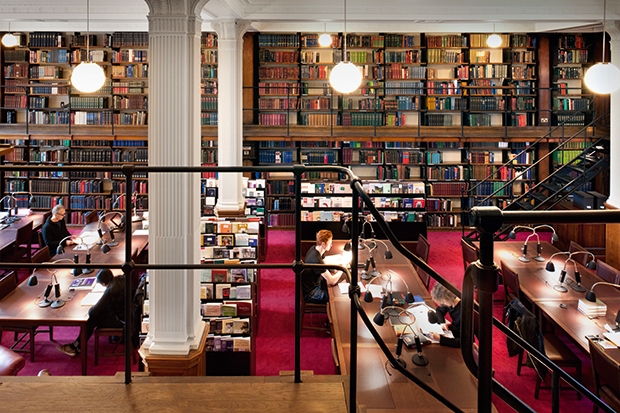Some rogue has been writing in my bedside book. A fastidious hand has crossed out misspelled words and written neat pencil corrections in the margin. ‘Dennis’ has become ‘Denis’, quotations have been reattributed and dates amended. More than one book scribbler has been at it. At times, the pedantic pencil becomes a biro, thrilled to have spotted mistakes the first reader missed. The book is The Golden Echo, memoirs of the Bloomsbury novelist David ‘Bunny’ Garnett, a scattershot speller and fact-checker.
I say it is my bedside book. Really, Garnett belongs to the London Library. But for the two months that a London Library book is allowed to me, I am possessively attached to it, and aggrieved when it is due for return.
The pencil marks of other borrowers in a book always pull me up short. It shatters the graceful illusion that the London Library is arranged for my benefit alone: a room of one’s own in St James’s Square. On the rare occasions that an email arrives to say another member has requested a book I have out, I react with disproportionate fury. What? My book? The next morning I will set off across Hyde Park in high dudgeon and storm down Piccadilly to return it. (At £495 a year, membership is cheaper than the gym and carrying hardbacks from St James’s to Bayswater does wonders for the muscles.)
Canvassing for a new private lending library began in 1839, when the Scottish historian and biographer Thomas Carlyle argued against the ‘buzz and bustle’, ‘importunate distraction’ and headaches of public rooms. He may have had in mind the reading room at the British Museum where a gentleman of letters (and his bluestocking daughter) might request a book, but not take it home.









Comments
Join the debate for just £1 a month
Be part of the conversation with other Spectator readers by getting your first three months for £3.
UNLOCK ACCESS Just £1 a monthAlready a subscriber? Log in